RECAP: Twentynine Palms Planning Commission, April 15, 2025
Entertainment license and ancillary business use codes pass—and, should alcohol licenses get a public airing?
The Planning Commission has been sailing through its meetings lately, and clocking in at approximately 40 minutes, the Tuesday, April 15 meeting was no exception. All five planning commissioners were present, with this being the second meeting for a new generation of leadership with June 2023 appointees Jessica Cure and Alex Garcia serving as Chair and Vice Chair. Our preview of the meeting is here and the video can be reviewed at YouTube. Note that, as has become customary, the camera (and mics) were cut for the study session, so only the first 20 minutes are available as a record of the meeting.
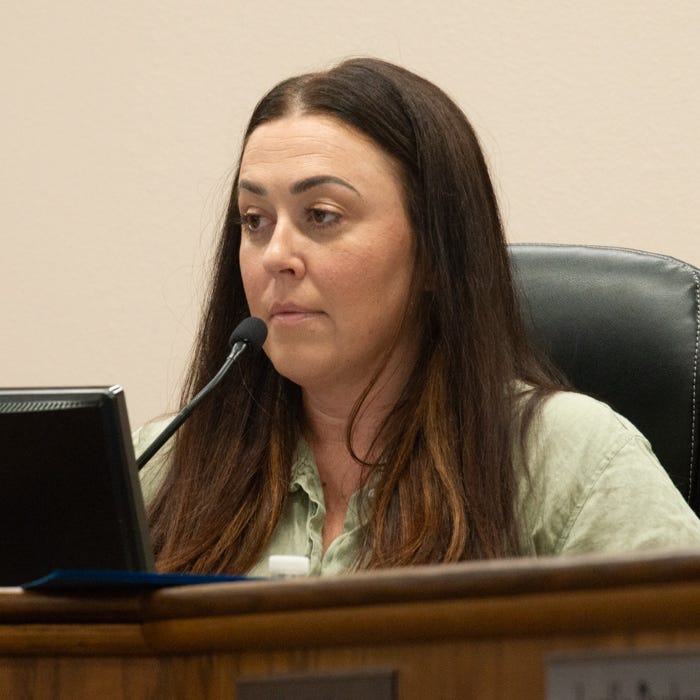
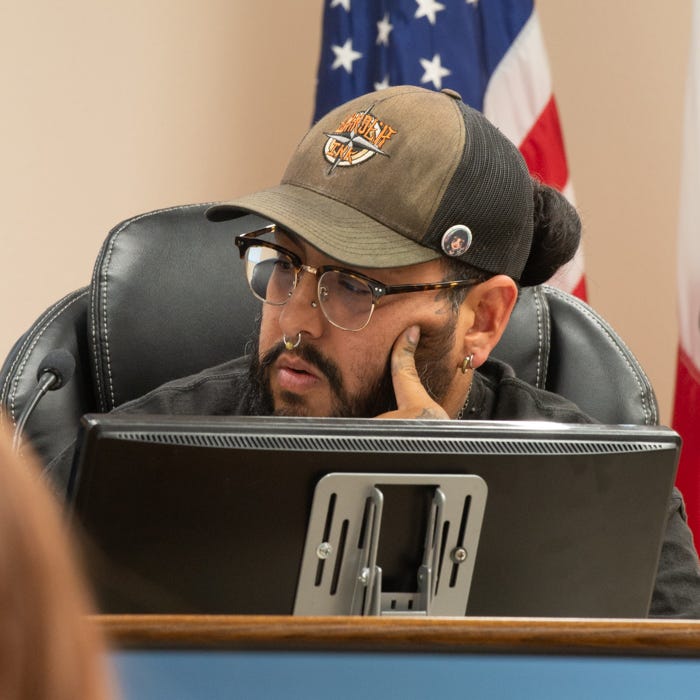
Proposed Code for Ancillary Business and Entertainment Uses Approved
As expected, given the number of times elements of the these codes have been discussed, the proposed development code for Ancillary Business and Entertainment passed 5-0 with little discussion. As Commissioner Jim Krushat put it,
I know we've beaten this one pretty hard. I like the simplicity. I think it's clear and appreciate the work that you guys have done.
We reviewed the code specifics in our agenda preview.
Ancillary Business
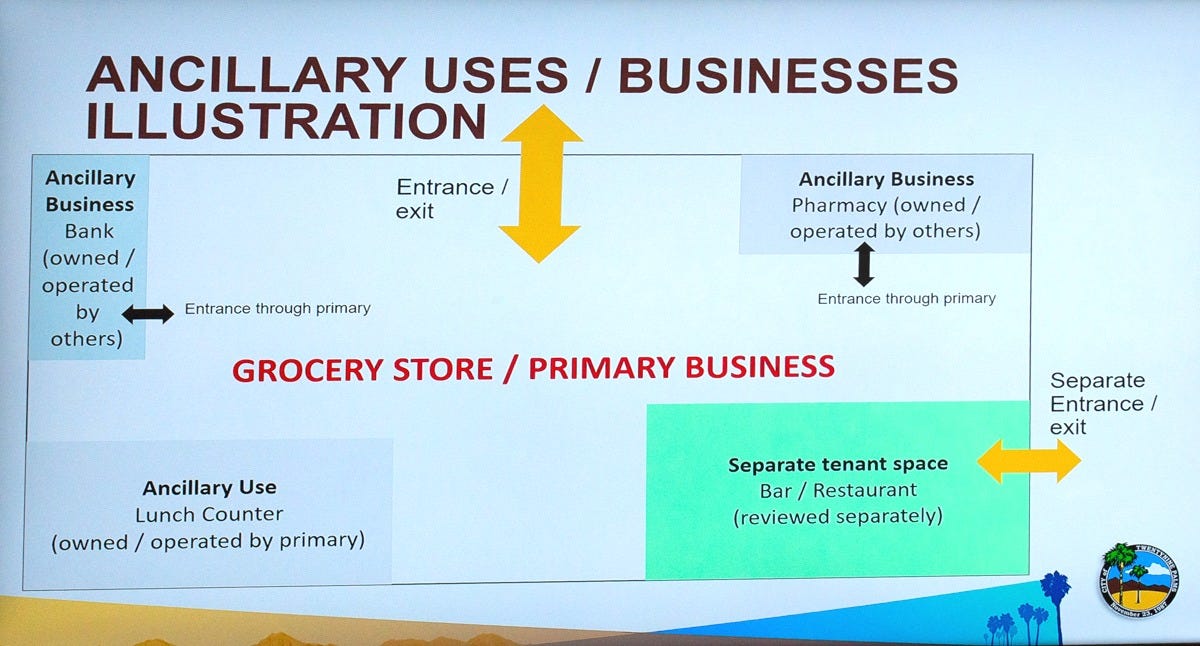
In his introduction, Community Development Director Keith Gardner added a useful clarification of terms using a grocery store as an example. Within a “primary business” such as Stater Brothers, there can be both an “ancillary use” — such as a lunch counter run by Stater Brothers — and an “ancillary business” such as a bank, which is run by Wells Fargo, a separate business from the primary business.
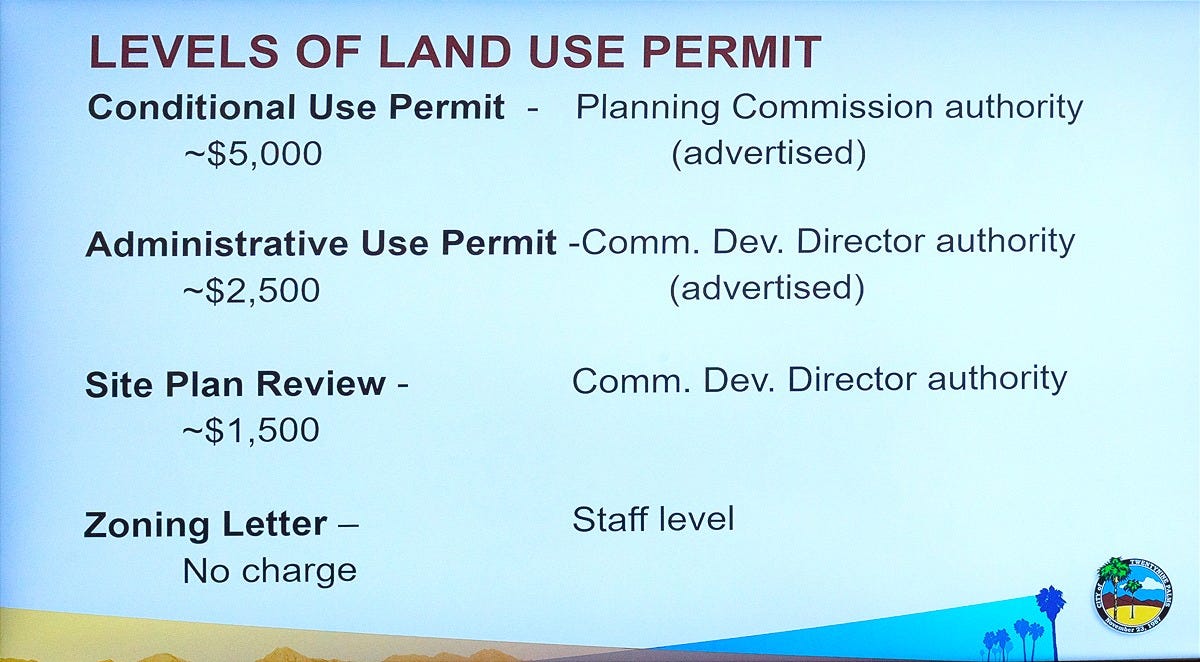
He also provided useful information on how the fees for ancillary business uses would be calculated using the four levels of land use permit, from the most “intense” and expensive, a Conditional Use Permit (CUP) to the most basic, a Zoning Letter. These permits and reviews are essentially contracts between a business and the City which outline the business operations within the zoning where they are located. Per Director Gardner, “The process that we are proposing is the review of the secondary business will be reduced one level of intensity from what will otherwise be reviewed.”
For ancillary uses:
Again, we're talking about things that are offered by the same company or the same business, as long as the same the ancillary uses are at the same level or lower as listed on the level land use tables then no permit process is needed. For instance, a bar that tells T shirts and mugs — that's not technically part of being a bar, but it's general retail, then there's no need for land use approval.
For ancillary businesses:
Ancillary businesses are not owned or operated by the primary [business]. Entrances and exits must be located entirely within the primary business with no unique means of access. The secondary business must have the same hours of operation or less than the primary business and ancillary commercial businesses may not take up more than 25% of the primary. The process of this that we are proposing is the review of the secondary business will be reduced one level of intensity from what will otherwise be reviewed. In other words, a business requiring a CUP may be reduced to AUP.
Ancillary Entertainment
The code also covers ancillary temporary entertainment use such as weekly live music in a restaurant. Per Director Gardner:
What we're proposing here is a license process, not a land use permit, and this will be renewable once a year, provided there are no significant code enforcement or law enforcement issues pertaining to live entertainment at a particular venue. Procedurally, we would add this to an existing business license, and we’d review the business license and any entertainment license at the same time. And these applications for ancillary live entertainment would be reviewed by building and safety, law enforcement, fire department for safety reasons… in general, what we're proposing is that, since it's a license and not a land use approval, there will be substantially less than the typical land use applications.
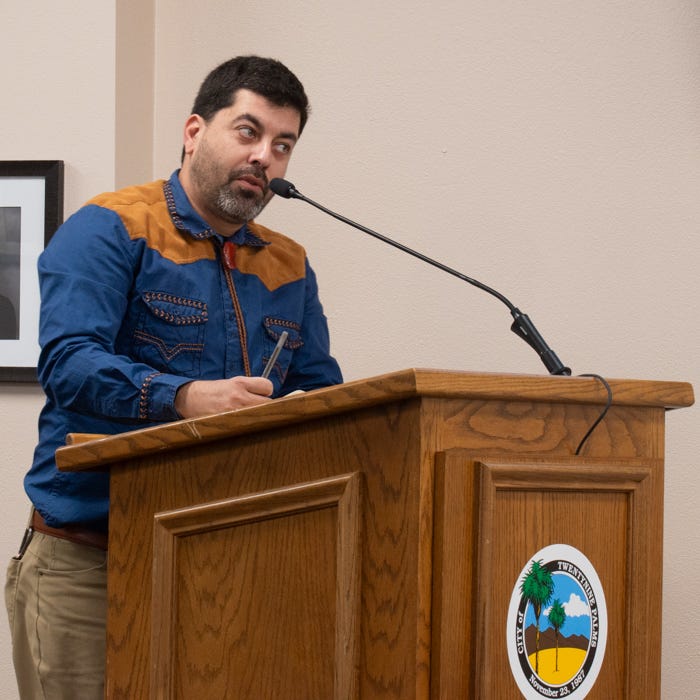
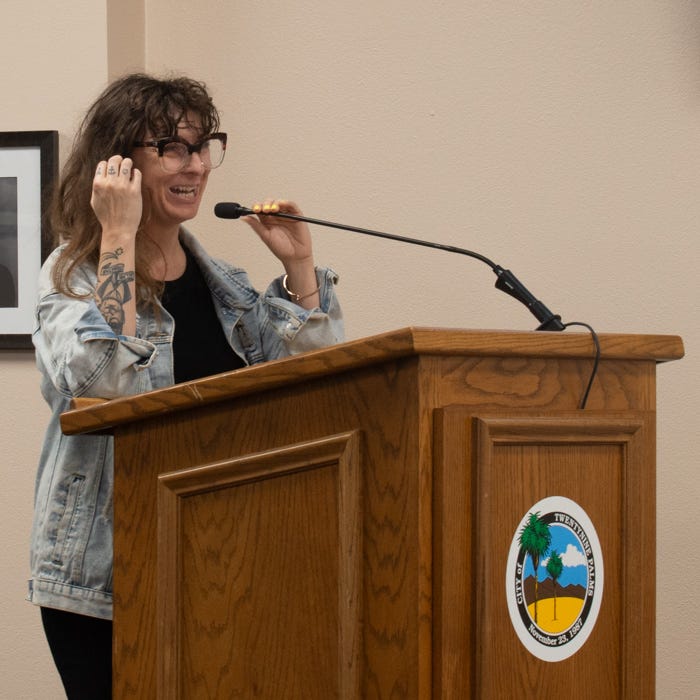
In public comment, both Carlos Blandon and Sara Lyons expressed support for the new entertainment code. Lyons, owner of Scorpion Lollipop in Corner 62, Secretary of Rediscover 29, and Vice-Chair of the Public Arts Advisory Committee (PAAC), spoke to the need for fees to be affordable for small businesses and added some concerns she felt were worth considering:
My understanding is that these first fees would go into effect in July. So I would also like to suggest that there is a grace period for businesses, because that will be right in the middle of our slow season, when every dollar counts, most people are barely making rent as small businesses in July.
I and other business owners would be interested to know how the city plans to use the money that they will be accruing through these fees. For example, like I said, we're at corner 62 if the initial permit is $250 that's $1,000 just from our building to the City. I haven't heard any discussion about how that money is going to be used as a member of Rediscover and as a PAAC member. I certainly have some ideas about where it could go…where is that money going to go, and how is it going to help our community continue to thrive?
Once it is approved by Council, the addition to the development code would fall under Article 5, Special Uses. Licensing fees are the provenance of Council as well as whether those fees are put to a dedicated purpose. However, generally licensing fees are cost-neutral as was pointed out in the very brief Commission discussion prior to the unanimous vote to approve.
Study Seesion: Should Alcohol Licenses Be Limited? Should Applications Be Reviewed in Public or Handled By Staff?
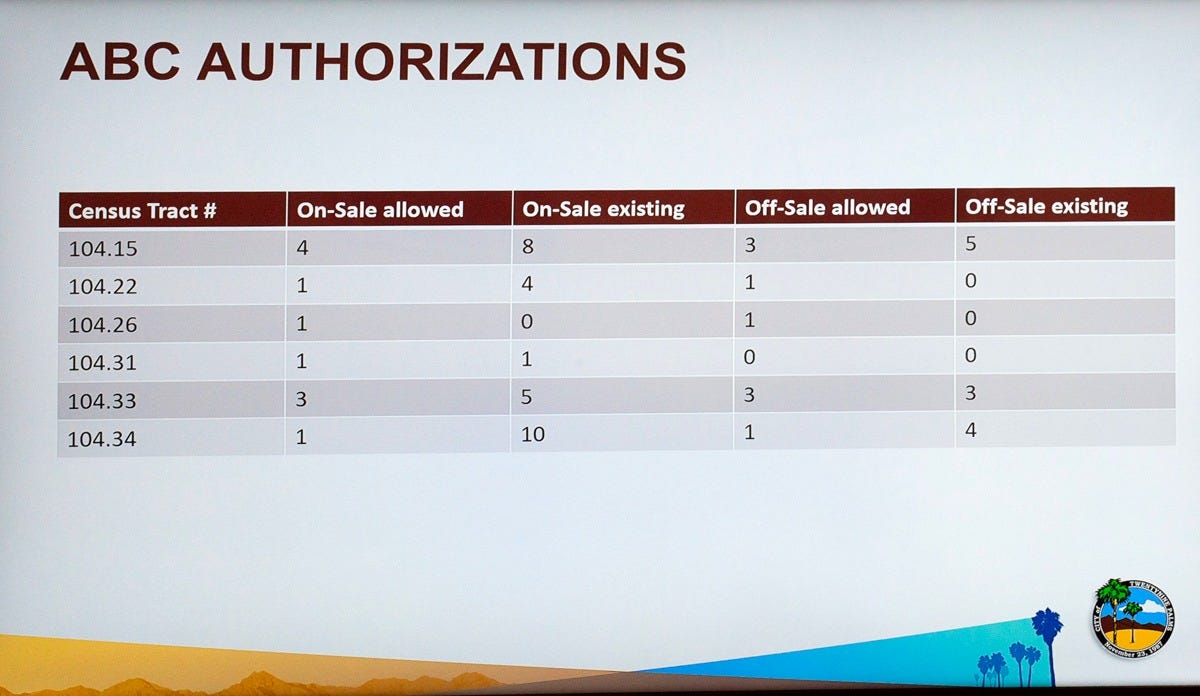
Alcohol licensing was the third of three topics listed in Part 2 of Director Gardner’s review of Article 5, Special Uses, in the development code. The other topics, slight adjustments in code on commercial outdoor dining setbacks and storage, received scant attention in the study session. Again for details on the code, see our agenda preview.
Per Director Gardner, alcohol licensing is controlled by the local jurisdiction, in this case the City, and he pointed out that license numbers often exceed ABC suggested limits:
So from my experience, Twentynine Palms has been fairly lenient on alcohol sales. And this is not true for other jurisdictions. Other jurisdictions can be very, very strict.
Gardner was seeking direction on a few questions:
What is the appropriate permitting process for alcohol sales? Should it stay with the Planning Commission or be handled by the Community Development Director?
Should Twentynine Palms limit the number of licenses?
How detailed should license application reviews be?
Gardner’s concern is that in addition to being lenient on the issuance of licenses, the City has been inconsistent on how the approvals are handled, and he would like to bring consistency to the process. For instance, issued licenses can be very general designating only whether sales are on-site or off-site or whether beer and wine and/or hard alcohol are allowed or they can be more specific — California lists 99 different license types.
Sometimes we have specifically allowed on sale, and sometimes we've specifically gone down to the license type. And I just want to be consistent in the future, so how we process these.
It should be noted that the current process of alcohol licensing passing through the Planning Commission means there is public input on which businesses are licensed and the density of licenses in any given area. While moving licensing to the staff level might ease the strain on businesses, it also removes public input. License applications would be reported to the Planning Commission AFTER they are approved if handled by staff.
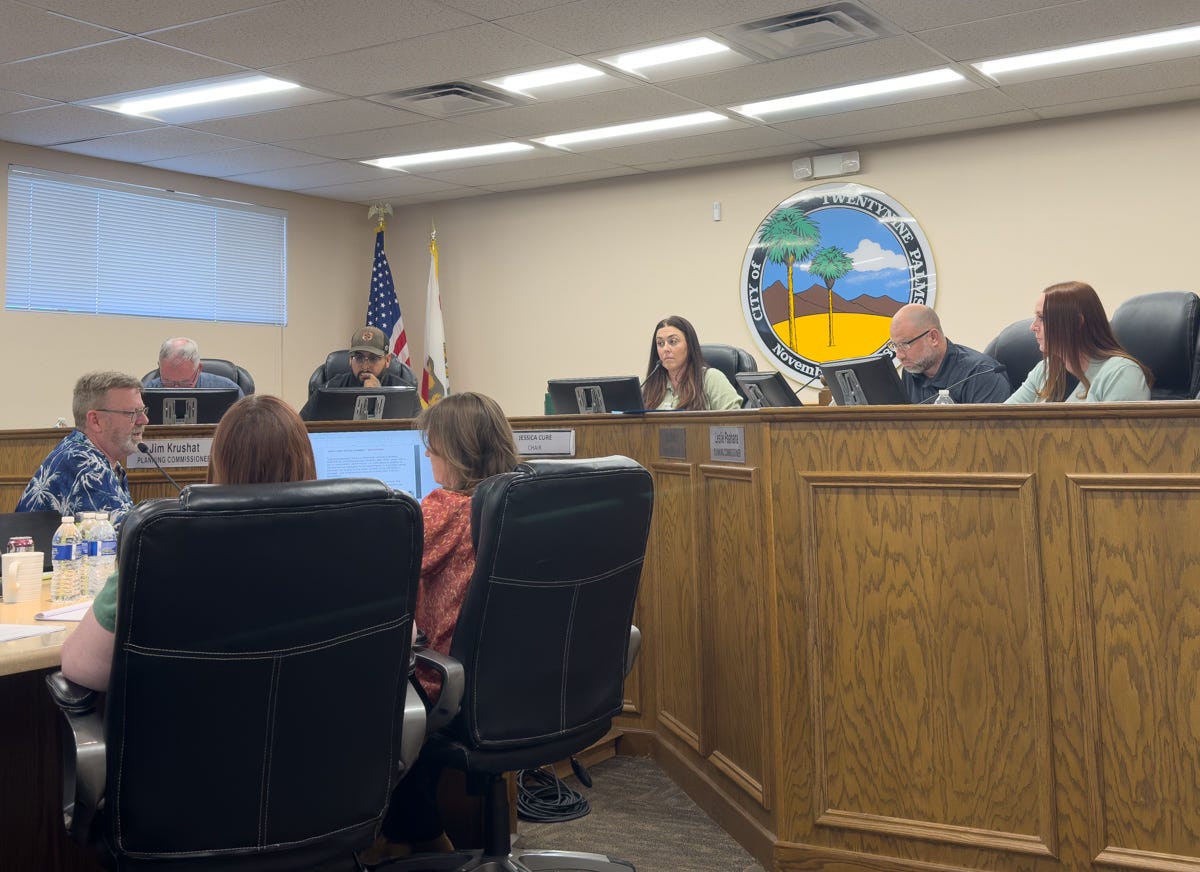
As Gardner pointed out, being over the allowed number of licenses per ABC “doesn't seem to have caused any consternation in the community or anywhere else.” But it’s also not clear how aware the community has been of the density of licensing. When Family Dollar’s application for an alcohol permit came before the Planning Commission in August 2024, only one member of the public spoke in opposition, despite that area already being dense with licenses and concern about nationally owned businesses selling alcohol impacting locally owned businesses.
As was demonstrated the 5-0 approval of the Family Dollar license back in 2024, Commission discussion leaned heavily toward favoring businesses and leniency in licensing and with codifying the process in code having staff process and approve licenses. With that direction, staff will return with a draft ordinance for review.
Should Study Sessions Have Public Comment?
After the brief discussion, Chair Cure then attempted to adjourn the meeting without having allowed public comment on the study session items. Representing Desert Trumpet at the press table, I intervened as I needed clarification on an item for this article. Planning Assistant Shelley Green stated that the City Attorney had advised that allowing public comment on a study session item is at the discretion of the Chair.
If this was the advice given, it is not consistent with the Brown Act — there is no exception made for “study sessions” when it comes to the public comment requirement.1
Chair Cure did end up allowing comment, but wouldn’t it be helpful for there to be consistency on this issue? If public comment is not going to be allowed in a study session, regardless of legality, why not give the public the courtesy of announcing the position at the top of the meeting so those wishing to speak can do so during general public comment?
That said, Desert Trumpet urges Chair Cure to allow public comment in study sessions—not only it is correct action legally, giving the public a voice on all agenda items is simply the right thing to do.
Leave your thoughts in the comments below. Please note that we do not allow anonymous comments. Please be sure your first and last name is on your profile prior to commenting. Anonymous comments will be deleted.
Feel free to share this article!
We have reached our goal of $5,000 in paid subscriptions! We are very grateful for support from our community. We know that many communities in the Morongo Basin are economically disadvantaged, so our coverage will always be free. However, if you have the means to support our work, we always appreciate upgrades to a paid subscription. Your upgrade helps keep subscriptions free for those who cannot afford to donate.
Note: Your subscription/donation will be listed as AHA Projects, the name of our fiscal receiver, on your statement.
Open and Public VI: A Guide to the Ralph M. Brown Act, League of California Cities, January 2024 revision.
p. 21 “Gatherings by a majority of legislative body members at the legislative body’s retreats, study sessions, trainings, or workshops are subject to the requirements of the Brown Act. This is the case whether the gathering focuses on long-range agency planning, discussion of critical local issues, satisfying state-mandated ethics trainingrequirements, or team building and group dynamics.” (Emphasis added)
p. 38: "Every agenda for a regular meeting must allow members of the public to speak on any item of interest, as long as the item is within the subject matter jurisdiction of the legislative body. Further, the public must be allowed to speak on a specific item of business before or during the legislative body’s consideration of it."


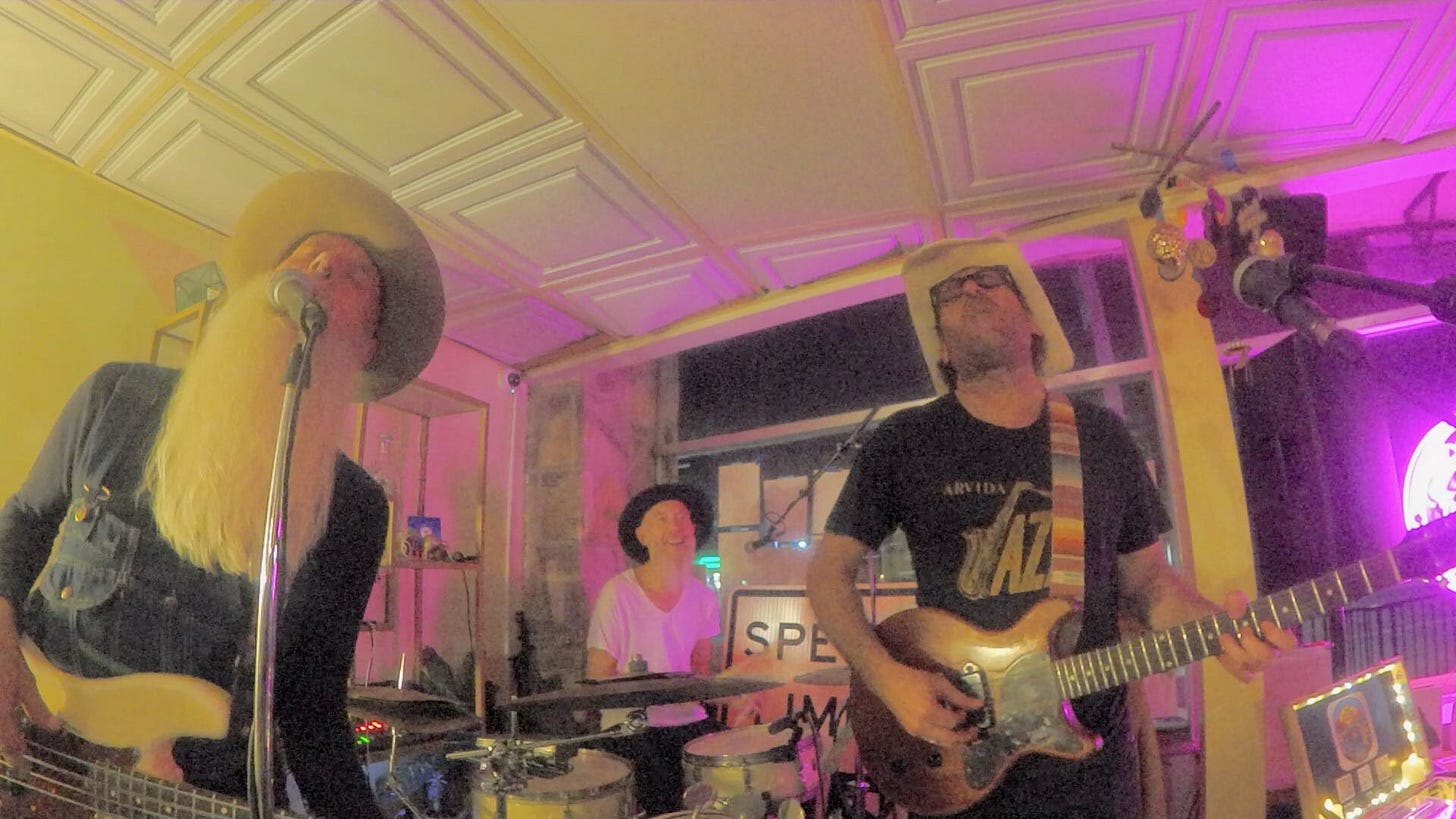
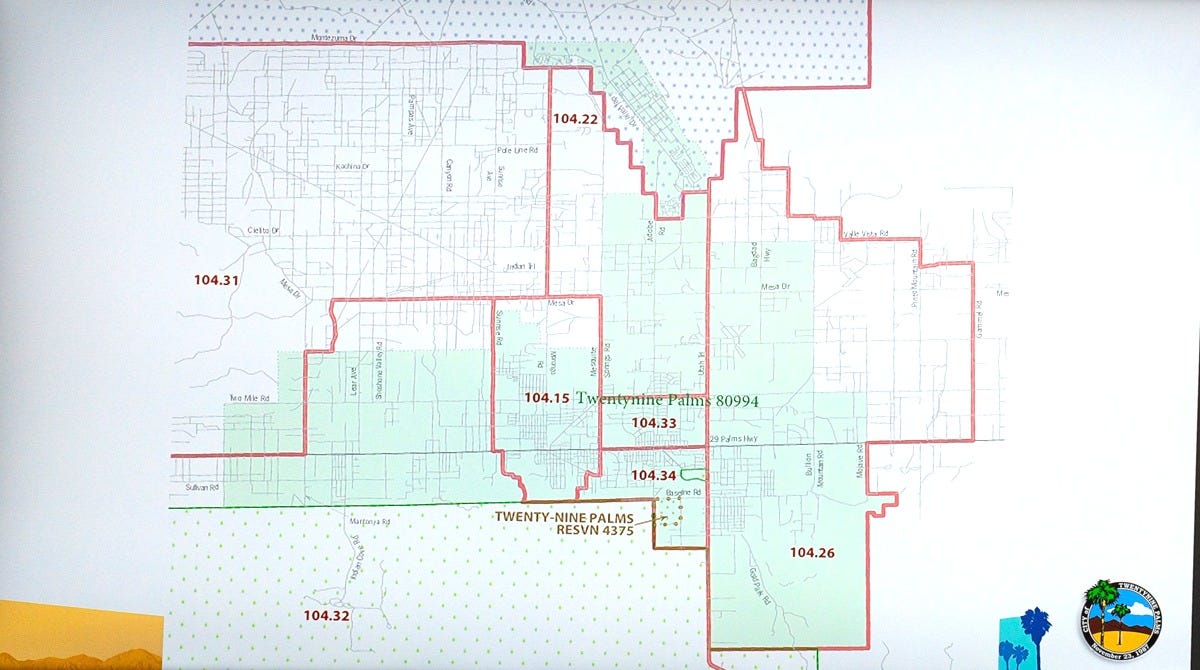
I think these board members need some pre schooling before they take their chair.